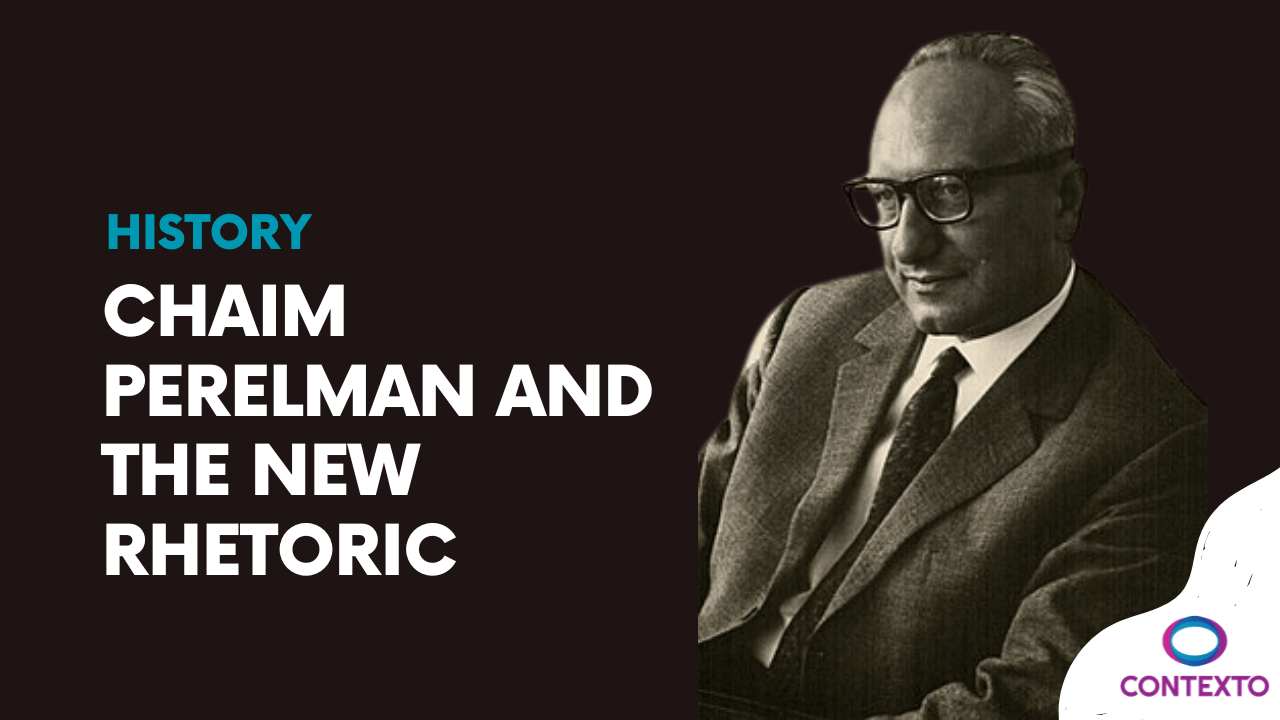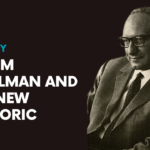Have you ever wondered how we can persuade others without resorting to manipulation or imposition? How is it possible to build consensus in such a diverse world full of different opinions? The philosopher Chaim Perelman dedicated his life to answering these questions — and the result was the creation of the New Rhetoric, a powerful theory about the art of arguing with responsibility, ethics, and clarity.
Who was Chaim Perelman?
Chaim Perelman was a philosopher and jurist born in Poland in 1912 who later lived in Belgium. He became one of the leading thinkers of the 20th century on the subject of argumentation. After witnessing the horrors of the world wars and totalitarianism, Perelman felt the urgency to rebuild the idea of a democratic and pluralist rationality.
His bold response was to reclaim rhetoric — often seen as something negative or manipulative — and show that it can (and should!) be a tool for building dialogue and coexistence among differences.
What was the historical context?
In the years following World War II, the world needed to rethink the paths of reason, ethics, and politics. Blind faith in science and formal logic was no longer enough. The central question became: how can we make fair decisions in societies where people disagree on values?
It was in this context that Perelman, together with the philosopher Lucie Olbrechts-Tyteca, developed his theory, published in 1958 in the book “The New Rhetoric: A Treatise on Argumentation”.
What is the New Rhetoric?
The New Rhetoric is a theory of argumentation designed for real-life contexts, where reasoning is not mathematical but rather practical and persuasive.
Perelman proposes that, instead of trying to “prove” ideas like equations, we should learn how to convince and inspire adherence from our audience — whether in a conversation, a speech, a trial, or a classroom.
Main concepts of the New Rhetoric:
- Audience: every argument is directed at someone — and should adapt to that audience.
- Rational adherence: to persuade is not to manipulate, but to present reasons that make sense to the other person.
- Argumentative techniques: analogies, examples, dissociations, authority — all can be used ethically.
- Dialogue and pluralism: instead of searching for “the truth,” we seek reasonable agreements in diverse societies.
What is the connection with Aristotle?
Perelman was strongly inspired by Aristotle, the great Greek philosopher who also valued rhetoric as a legitimate form of reasoning.
Like Aristotle, he believed that in practical matters such as politics, ethics, and law, the goal is not to prove absolute truths, but to deliberate well, based on strong arguments and mutual listening.
But Perelman goes further: he updates this view for the modern world, where no group can claim to own reason. In a democratic society, argumentation must be a tool for coexistence, not domination.
Curiosities about Perelman
- His work deeply influenced fields such as law, education, communication, and moral philosophy.
- He was one of the first to argue that ethics and argumentation are deeply connected.
- Perelman was also director of the National Center for Scientific Research of Belgium and a professor at the Free University of Brussels.
Why does this still matter today?
We live in an era of polarization, misinformation, and intolerance. Knowing how to argue with respect, clarity, and empathy is an essential skill — both for professional life and for citizenship.
Perelman’s New Rhetoric teaches us that arguing is not about fighting to be “right”, but negotiating meanings, values, and decisions in a shared world.
It is a powerful ally of democracy, justice, and human coexistence.
Conclusion
Perelman invites us to rethink the way we communicate and live together. The New Rhetoric is a call for ethical responsibility in the use of words. Instead of manipulating, to dialogue. Instead of winning, to convince. Instead of imposing, to propose.
As Perelman himself said: “To convince is to provoke the adherence of free spirits.”
How about bringing this teaching into your daily life?
Bibliographic reference:
- PERELMAN, Chaim; OLBRECHTS-TYTECA, Lucie. The New Rhetoric: A Treatise on Argumentation. University of Notre Dame Press, 1969.










Leave A Comment